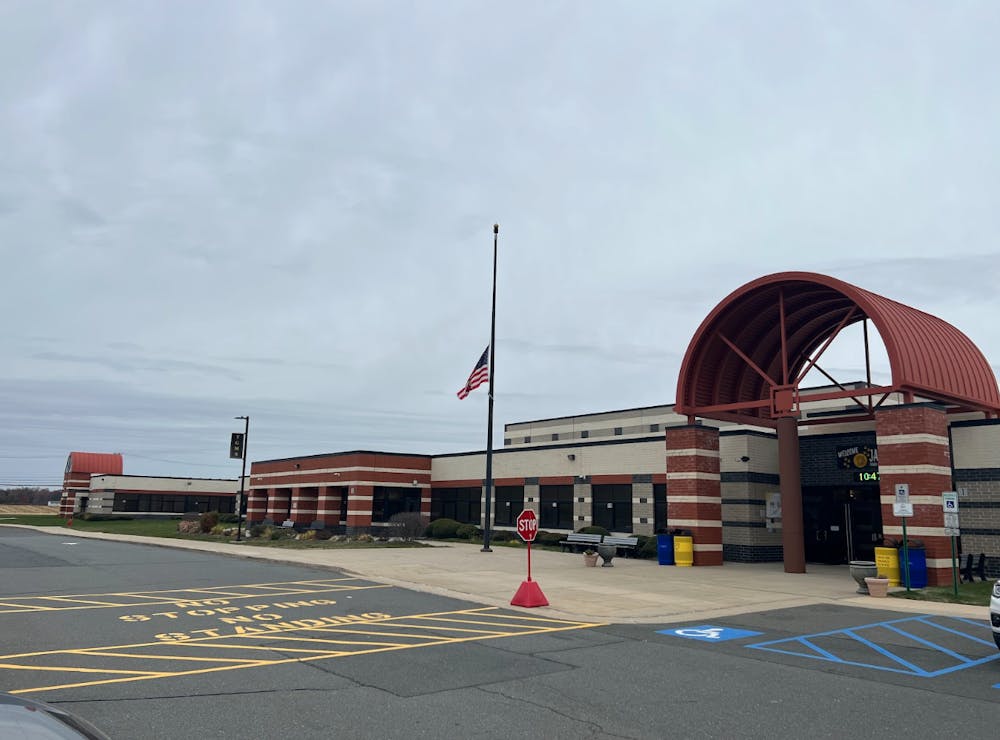By Victoria Gladstone
Managing Editor
Each semester, hundreds of education students are placed into schools whether it’s their first or their last in-school experiences.
Student teachers in their internship experiences have reported a vast difference in their overall experience in their districts, depending on where they were placed. Among other things, student interns have found that support from cooperating teachers, access to teaching resources and student engagement all play a large role in the positive experience of a new teacher.
This semester, I am teaching in a seventh grade literacy classroom in Grover Middle School, located in West Windsor-Plainsboro, which is the fourth best school district in New Jersey, according to Niche. All things considered, I would call myself lucky to be where I am placed. Not only do I have a supportive cooperating teacher who is an alumnus of the College, but I am in a classroom that is lively and engaged in what they are learning.
As I spend more time with my fellow education majors who are placed in schools around New Jersey, I have begun to notice the stark difference between overall teaching experiences depending on where they are placed. Each school district is unique, with their own set of readily accessible resources and level of needs from the students.
Other student teachers, like senior mathematics and secondary education major Michelle Ebel, that are placed in West Windsor-Plainsboro also have had good experiences working in the district.
Ebel’s class in High School South is equipped with several whiteboards, a main computer for teaching, a projector and a document camera. In addition, all students are given the choice between using an electronic textbook on their Chromebooks or a physical copy.
With ample resources to use to teach, Ebel was able to focus on “[learning] how to get more comfortable in front of a classroom full of students.”
In Bordentown Regional High School, where senior English and secondary education major Isabella Michaelis is placed, the resources are “plentiful,” she said. The district is ranked as the 116th best school district in New Jersey.
According to Michaelis, every student is issued a Chromebook and school planner. On top of this, each classroom is equipped with two whiteboards, a projector, an iPad for hallway passes and an extensive library.
Michaelis noted that while this semester has been challenging due to rigorous school work, she felt supported and welcomed by the school district and its students.
“My cooperating teacher acted as my mentor and wanted nothing but success for me,” said Michaelis. “The students allowed me into the classroom with respect.”
Some student teachers at the College, like Ebel or Michaelis, have had overall positive experiences when they are working with school districts that yield high test scores.
Unlike many other student accounts that relate to schools with high proficiency, senior English and secondary education major Ally Tobler is currently teaching eighth grade literacy at Martin Luther King Jr. Middle School in Trenton, a school system not even ranked on Niche’s website that was given an overall score of D+.
While Tobler is someone who “aspire[s] to teach and live in an urban setting in the future,” she describes some of her first teaching experiences working in an urban setting as “demanding,” with several obstacles in her path.
Tobler noted her pride in finishing her unit with more than half of her students receiving passing grades on their final assignments.
In MLK Middle School, all students are issued iPads that give them access to Google Classroom, their main domain for classwork. Tobler stated there are positives and negatives to the technology used for the students.
“On one hand, they facilitate access to Google Classroom for the students at school and at home,” she said. “However, I'm contemplating their impact on student engagement and academic performance; this is sometimes negatively affecting their grades and participation.”
While it can be hard to get full class novels in this district, Tobler’s cooperating teacher is working towards getting a full set of “The Hunger Games” by Suzanne Collins for her next unit. She added the lack of supplies is one of the challenges of working in Trenton.
“Each school environment is unique, and my lesson plans differ significantly from those in other schools,” said Tobler. “Urban districts like Trenton present distinct challenges, particularly in resource availability.”
Oftentimes Tobler finds herself teaching alone to her students, even without a substitute teacher.
“The occasional absence of my cooperating teacher (due to health issues), often unannounced, presents its own set of challenges, especially as a student teacher who might not have managing skills yet,” said Tobler. “When I was teaching my two week unit my cooperating teacher was absent for a few days so I did feel slightly discouraged because it is very hard to keep a class controlled when you have very little experience with classroom management.”
“Many 8th-grade students in Trenton read at a 4th-grade level, posing additional hurdles,” Tobler added. “Understanding professors makes a significant difference; however, some struggles with professors in planning units have been experienced. Overall, with supportive professors, success and productive units in clinical [one] are achievable.”
A student teacher’s experience is influenced by their placement and the support given to them by the school district.
As the fall semester starts to wrap up, the new batch of placements are beginning to roll in as to where student teachers will be placed for their full-time and practicum experiences. Education students have little say in where they are placed and are instructed to not reach out to school district administrators to find their own placements, according to the College’s student teacher/intern policy.
While I am unsure of where I will be placed in the coming future, I am hopeful I can be in an environment where I feel supported by my cooperating teacher and equipped with the necessary tools to be successful.







